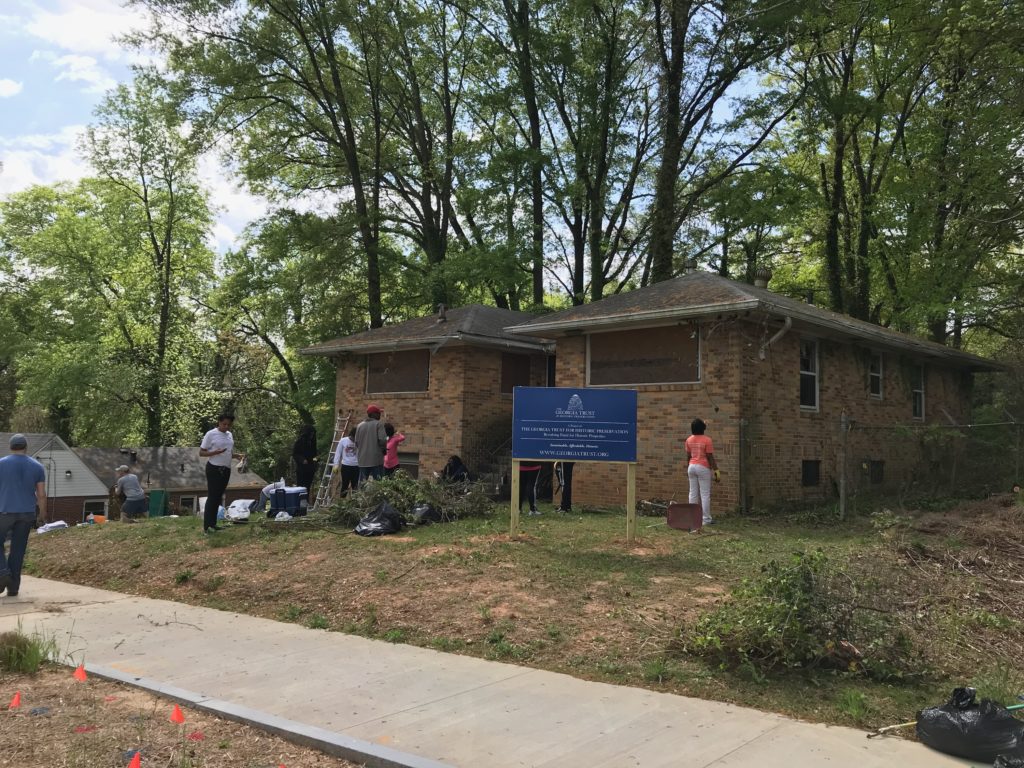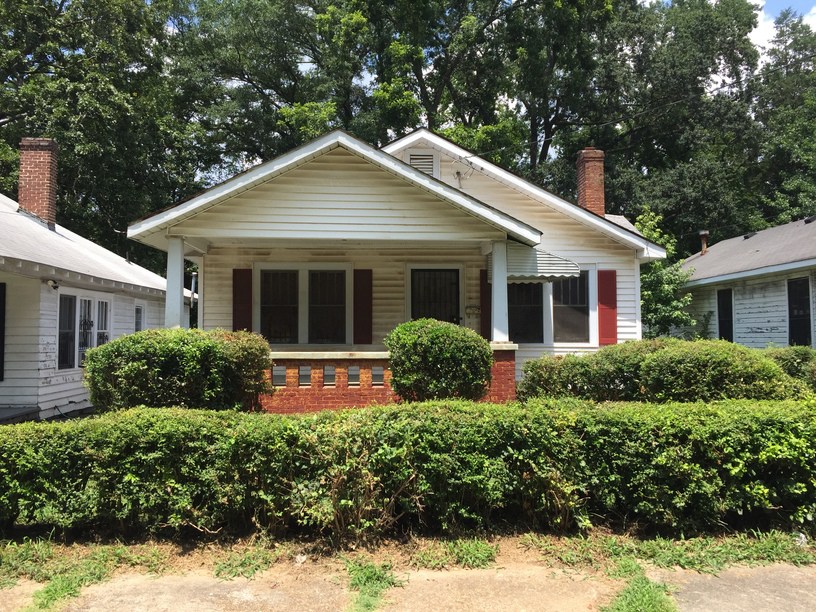A single-family home has never before achieved EarthCraft Sustainable Preservation certification, but thanks to The Georgia Trust for Historic Preservation and a longtime resident of Atlanta’s Westside community, that might change.
In March, The Georgia Trust acquired three single-family properties along the Atlanta BeltLine’s Westside Trail – two historic homes and an undeveloped lot. Working with EarthCraft, the Trust will rehabilitate the two existing homes and build a third one on the lot. All of the homes will be marketed as affordable housing that is EarthCraft certified and environmentally sustainable, and in keeping with the neighborhood’s existing architecture.

The homes are located in the historically-black Washington Park neighborhood and Mozley Park, both of which are listed on the National Register of Historic Places. When fully renovated, the homes will reflect the communities’ architectural beauty and rich history, while boasting state-of-the art energy and water efficiency improvements.
“As a preservation organization, our primary goal is to see significant historic sites maintained. However, preservation in a larger sense is about communities, and we believe that in order to preserve the character not only of the built environment of the Westside communities, but also the people who have lived there for decades, affordability has to be addressed,” said Neale Nickels, Director of Preservation at the Trust. “A well-designed community is one that has a diversity of housing options.”
According to Nickels, the project was realized thanks to the encouragement of the Trust’s past Board Chair, Bill Peard, who suggested the preservation organization focus on Atlanta’s Westside.
“We wanted to show that with the great development pressures these communities are facing, there is still a chance and a need for preservation,” he said.
Nickels explains that a tip from the BeltLine’s housing team led the Trust to the Washington Park home on Harwell Street, which Edward Johnson built for his family in 1953. Johnson, 102, still lives in the Atlanta area and enjoyed a storied career in the community. A ground school instructor for the Tuskegee Airmen, Johnson was honorably discharged as a sergeant after World War II.
“After the war, Mr. Johnson became Atlanta’s first black licensed Master Electrician. He started the Johnson and Wood Electric Company with a fellow Tuskegee graduate, and wired many homes and businesses in Atlanta’s Westside, including projects at MARTA stations and Clark-Atlanta University,” Nickels said.
In meeting with the family, the Trust learned that the Johnsons also owned a vacant lot next to the Harwell Street home, as well as a home in Mozley Park.
The Trust will demonstrate how historic preservation paired with financial incentives can help lower costs. Southface will partner on the project to ensure that future residents live in comfortable, energy efficient homes, and residents can take advantage of Invest Atlanta’s down payment assistance program to help keep their acquisition cost low. The Trust also has at its disposal other tools that ensure the projects are done to high preservation standards, while meeting commonly-accepted affordability levels.
“Even though these are just a couple of properties, we hope that they will become a model for others to copy, and we will be poised to assist anyone in achieving that goal,” Nickels said.
In 1990, The Georgia Trust established the Revolving Funds program, which through rehabilitation and preservation, provides alternatives to demolishing historically significant properties. The program works to locate buyers who agree to continue preserving and maintaining the property.
“From a sustainability standpoint, the greenest building is the one that’s already built,” Nickels said. “Buildings take a lot of energy to produce…but even more, historic buildings are the most tangible link we have to our past.”

The Washington Park and Mozley Park homes are pursuing EarthCraft Sustainable Preservation (ESCP) certification, the nation’s first green building certification program for historic buildings. Developed in partnership between Southface and The Georgia Trust in 2014, ESCP has “historically” granted certification to commercial buildings of historical significance. These properties near the BeltLine’s Westside Trail will be the first single-family homes to receive the certification.
“Old buildings can be downright uncomfortable by today’s standards, which has the unfortunate side effect of making them obsolete to many. By integrating the ESCP program into single-family buildings, we hope to help foster a successful program that will make Atlanta and the Southeast’s historic homeowners more open to taking steps to make their homes more energy efficient,” Nickels said.
